I recently picked up a couple of large hinoki cypress with the aim of developing them as bonsai. They seemed healthy and had good sized trunks so I thought they’d warrant the effort.
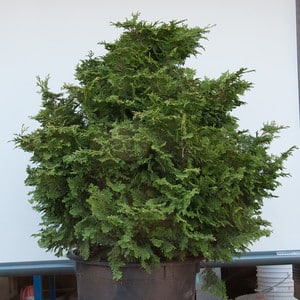
Hinoki cypress – Chamaecyparis obtusa ‘Tempelhof’
Adding new trees to my collection never seems overly burdensome. I simply remove a few branches and repot the trees. Beyond that, they typically require little more than water and fertilizer for the remainder of the year.
Of course, this changes – sometimes dramatically – a few years down the road. If I find I don’t have the time to give a tree the attention it deserves, I move it along.
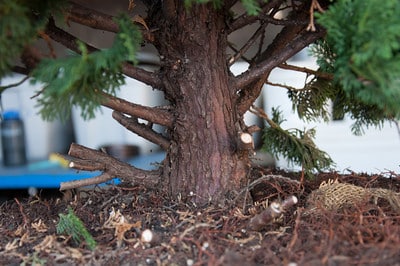
Trunk detail
Based on what I could see above the soil line, the tree looked like it had a nice trunk. Finding the rootbase, however, would provide more useful information. As the rootbase was large, I grabbed a large chopstick and got to work.
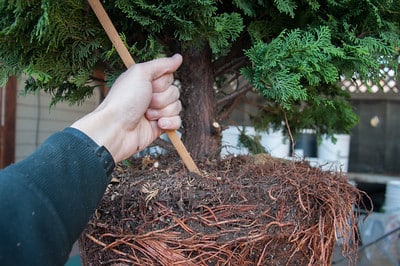
Key repotting tool – large chopstick
The rootbase, it turns out, started about 6″ below the soil line. When I found it, I noticed a significant graft line. I continued bare-rooting half of the rootball and potted the tree in my standard mix of akadama, pumice and lava.
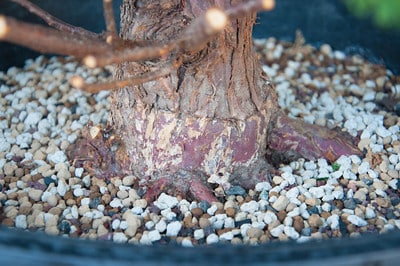
The graft line
The lower part of the trunk is likely chamaecyparis obtusa, the rest of the tree, ‘Tempelhof.’ As the graft line is striking, I’m considering ways of improving the appearance of the lower trunk. I’ve thought about burying it, creating an air-layer, or simply living with it the way it is. I have no experience air-layering hinoki, and have heard mixed stories about its feasibility, so I remain curious about this option. I don’t think I could actually bury the nebari, which means I may end up living with this line.
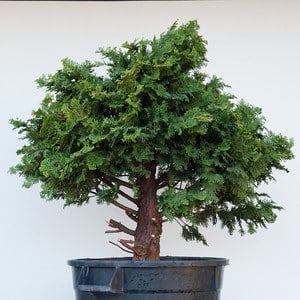
After cutback and repotting
I have a year to think about it. For now, I’ll focus on watering and fertilizing the tree, and delay any more dramatic decisions until next year.
Subscribe to Indian Bonsai Art
New Posts Delivered Every Tuesday and Friday
